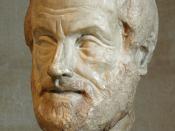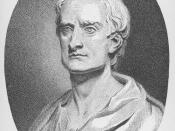This essay aims to clarify and alliterate the differences in the arguments and theories of the alternating scientific procedures expressed by the empiricist philosophers Hume and Popper.
Additionally, I have added the thoughts of Kuhn, a historian of science and of Feyerabend, an extremist philosopher who both provide their own opinions to the nature of science.
Finally, I offer my own humble opinions and answer the above question after talking in depth about the topic of this essay.
To illuminate the essay question:
Does falsification provide an answer to the problems of induction?
Hume was the main philosopher to start a controversy regarding the validity of the origination of all general scientific knowledge. His arguments against the use of various methods were answered and developed by Popper, which were then superseded by Kuhn and the Austrian born Feyerabend.
Hume recognized the weakness of using the method of scientific induction as a source of knowledge.
By ?induction?, I refer to the theory that when a being observes the activity of a group of objects, this person presumes that other items falling into this particular category must behave in the same way. For example: When I peacefully watch a group of swans while walking a dog by the lake, I notice they are all white. From this observation, I may presume it is probable that all swans must be white. This is true, of course, until I go to Australia and notice a black sawn. Then what happens?
It is through this lack of proof that Hume pointed out that all scientific finding based upon observation must be temporary and conjectural; i.e. cannot be claimed as fixed, true knowledge.
Hume goes on to point out that the use of the method of induction does not result in certain facts. On the...


